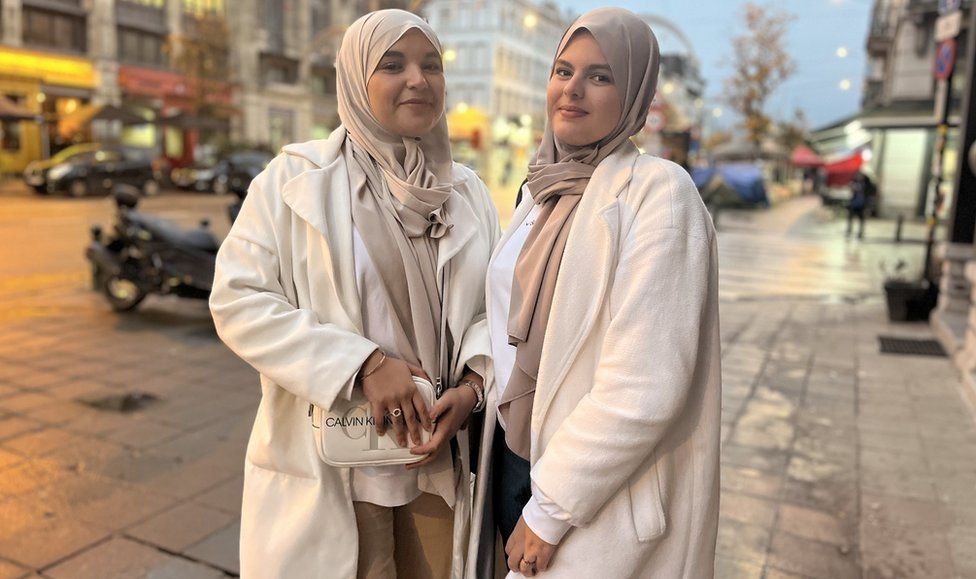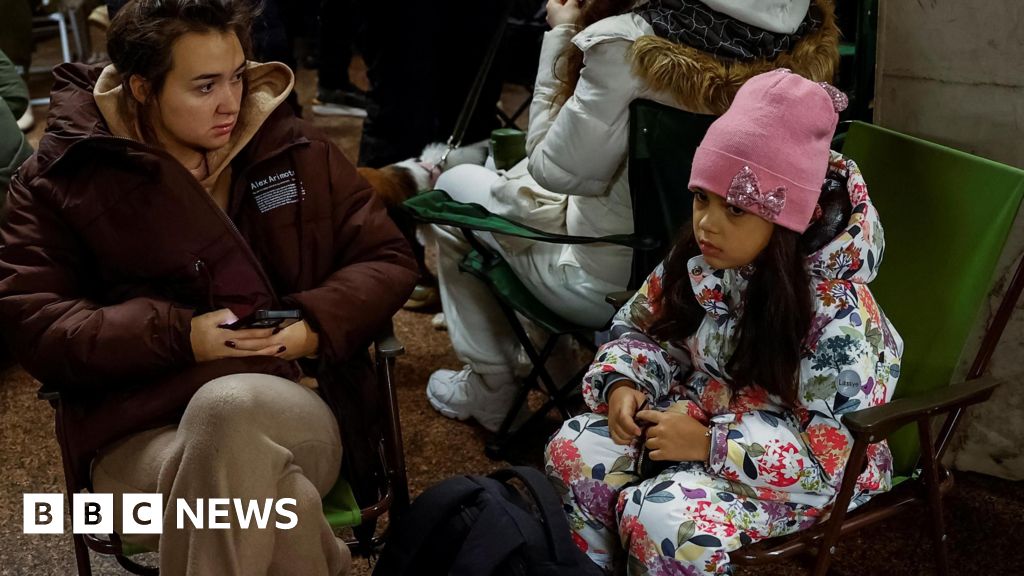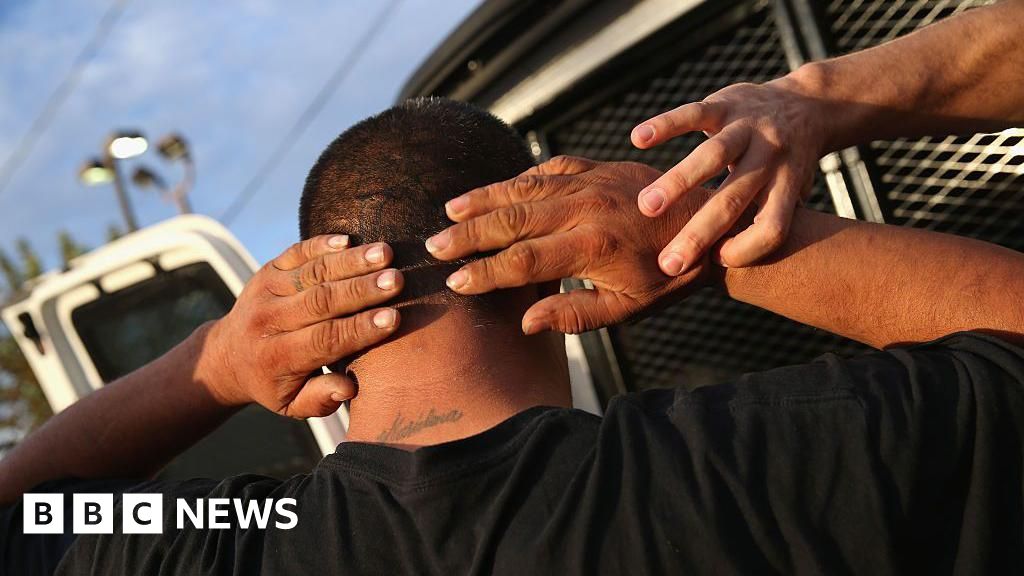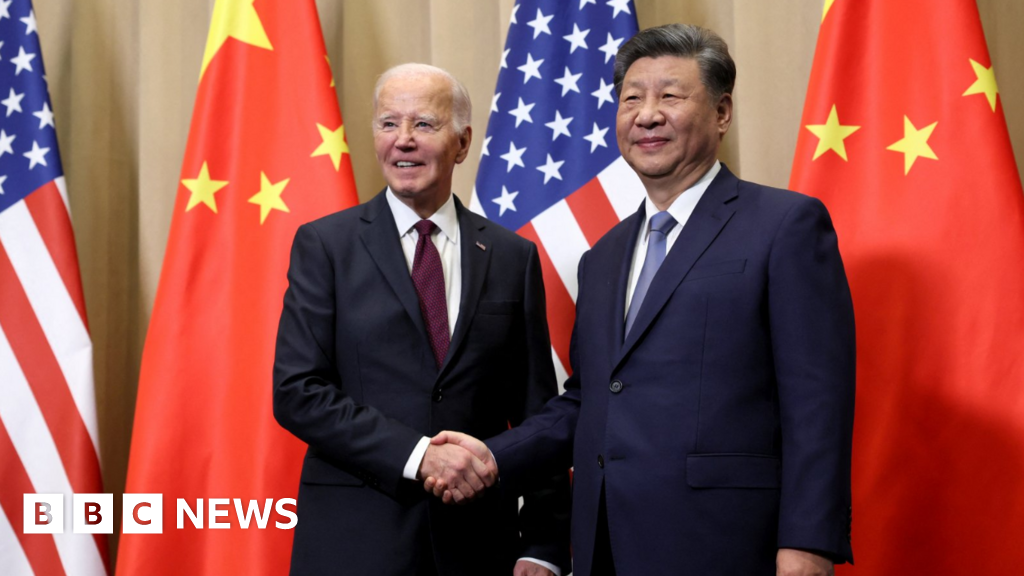ARTICLE AD BOX

Ines and Chaimae say the Moroccan team have captured the imagination in Brussels
By Bruno Boelpaep
BBC News, Brussels
"They are making history, they're making us so proud!" Ines and Chaimae are looking forward to Morocco's World Cup quarter-final against Portugal.
Draped around us, a red Moroccan flag with a green star is on display.
Walk through this part of central Brussels on a sunny morning and you could just as well be in Rabat or Tangiers.
In this Moroccan neighbourhood in the heart of the Belgian capital, you pass men sipping mint tea and families filling the many fish restaurants. The atmosphere is undoubtedly Moroccan as you head down the main street towards Midi train station.
The delicious smell of traditional Moroccan crepes, M'semen, fills the air.
Five million Moroccans live abroad, most of them in Europe. They make up large minorities in France, Spain, Belgium, Italy and the Netherlands.
Watch: Morocco fans celebrate historic World Cup win
Here in Brussels and surrounding regions, they number 400,000.
And just like their compatriots at home, they have been celebrating their national team's successes in the World Cup.
"It's been a great party, people were singing and dancing, all the cars were beeping their horns, we had a great time," says Chaimae.
But it has not all been partying. Some of the images that spread on social media after Morocco's victories showed celebrations turning ugly in several European cities.
In places, celebrations turned to street battles involving young Morocco fans and police.
Image source, Getty Images
Image caption,This was the scene on Boulevard Lemonnier as Moroccans celebrated victory over Belgium
Some of the pictures were taken on Boulevard Lemonnier, where Ines and Chaimae are standing.
"They've damaged our reputation; that was way out of place; this is not how we celebrate!"
Right-wing politicians across Europe were quick to spread pictures of the clashes and the resulting damage, suggesting it was a sign of failed integration.
In Spain, where most Moroccans are first-generation migrants, the partying passed off peacefully, even after Morocco beat Spain on penalties last Tuesday.
But celebrations were tainted by trouble in cities in France and the Netherlands, where Moroccan communities are well-established.
Young fans who clashed with police were largely from second- or third-generation families.
In France, 13 police officers were hurt in clashes in Lille on Tuesday night, and there was unrest in Rennes and Brest. Disturbances were also reported in the Dutch cities of Amsterdam, Rotterdam and The Hague.
Hicham Achrayah had a front-row seat from the windows of his Brussels café, Le Tetouan, when clashes erupted after Morocco defeated Belgium 2-0 two weeks ago.
Hicham Achrayah says local Moroccans suffered most from rioting fans
"I tried to speak to them, to calm them down, but they weren't listening. They were small in number, around 200 of them, and they were very young - kids really. All they wanted was to fight with police."
Hicham says those who came to riot felt hate towards the police and wanted to show off in front of their friends. But it was the residents who suffered.
"We are the first victims of these young thugs, one of my clients' car was burned down. The police protected the city centre and the Christmas market, but here nothing. Our shops were not protected."
After the unrest, many in the Belgo-Moroccan community decided to help calm the youths down.
For each game, young adults and neighbours now form a human chain between the young fans and the police.
Image source, Getty Images
Image caption,Since Morocco beat Belgium, members of the community have tried to ensure things do not get out of hand
Many from the community spoke out on the street and on social media, appealing to young people to celebrate peacefully.
Ahead of Saturday's quarter-final, Hicham is no longer worried: "The atmosphere is going to be incredible and we'll form a human chain again to avoid trouble."
Ines and Chaimae are looking forward to the game too. For Chaimae, whatever happens on Sunday, Morocco's national team has already won her heart.
"Even if they lose against Portugal, this is a great moment and we are proud. I just hope that if we lose, those kids won't make trouble and ruin the party."
Get the latest results and goal notifications for any team at the Fifa World Cup by downloading the BBC Sport app: Apple - Android - Amazon
Get your daily dose of Fifa World Cup reaction, debate & analysis with World Cup Daily on BBC Sounds

 1 year ago
19
1 year ago
19








 English (US)
English (US)